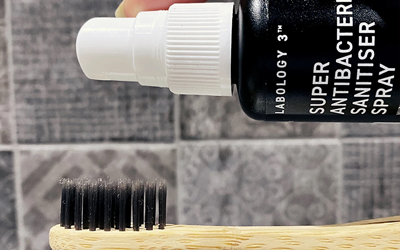
Why disinfecting your toothbrush is just as important as brushing your teeth
One evening we were blissfully scrolling through instagram and stumbled across our fave - A&E Paediatric Doctor @themunchingmedic A.K.A Dr Kiran Rahim's top tips to help prevent the spread of infectious germs amongst your household, including your babies and kids. Well, she (and her collaborator Dr Aziza Sesay) had us stumped at our own area of expertise. "Point three: wipe down surfaces... including your toothbrush, especially after infection".
How did we not think of this until now?! Our Super Antibacterial Cleansing Water does the job perfectly and here's why you should use it.
If you flush the loo with the lid up, poop splatters into the air and lands on your toothbrushes.
Chatting to Dr Rahim on Instagram we started to realise that routinely disinfecting your toothbrush is a big part of maintaining optimal health and hygiene. Yet it's something so many of us neglect. Not only can viruses and bacteria transfer and linger on your toothbrush from when you were last sick, she explained, there's the taboo of aerosol poop matter to consider. Yes, it's a grim as you think. If you flush the loo with the lid up, as is so often the case when you have newly potty-trained little ones (not that teens are any better!), small particles of poop splatter into the air and land on bathroom items including your toothbrush.
We realise this might sound a bit far fetched, but even dentists chimed into the conversation. Dr Mohsin Ali of Oak Hill Dental verified the issue during our online chat. "Endococcus faecalis" a bacteria that resides in our stools and cause stubborn urinary tract infections commonly spread via poor toilet hygiene, "is found in root canals that fail", he said. "Either dentist and nurses [are] not washing [their] hands when doing root canal fillings (or in the toilet) OR it's coming from aerosol toilet matter." The implication being that it lands on our toothbrushes, which we then pop into our mouths.

That's why it's a good idea to disinfect your toothbrush from time to time to help kill any germs that may be present on the bristles. While your body's immune system is usually able to fight off any harmful bacteria, it is good hygiene to take steps to reduce the number of germs on your toothbrush that minimize the risk of illness. Nevermind that absolutely no one wants poop in their mouth.
How to sanitise your toothbrush

There are several ways to disinfect your toothbrush, including using UV light sanitisers which can be costly, or boiling it in water which requires at least 10 minutes. Thankfully, our range of sanitising waters work fast and are non-toxic. Formulated from water and salt that are transformed into a natural disinfectant via a process called electrodialysis, it is compliant with the Biocidal Products Regulation to a food-safe standard that is also approved for use in drinking water (although we don't recommend you drink it). This makes our sprays particularly effective for eliminating 99.9999% bacteria and 99.99% spores, viruses and fungi on items that go in the mouth. The bonus is that it will sanitise your other beauty items like tweezers, nail clippers and hairbrushes along with your hands when out and about too.
Simply spray your bristles liberally and leave for 2 minutes for a thorough cleanse. Rinse under water to remove any saltiness and pop it back into your toothbrush holder. We recommend you do this once every three weeks and immediately after clearing infections like the cold or flu.
It goes without saying, visiting your dental hygienist for a thorough clean of your teeth is also recommended.
featured product
You might like to try
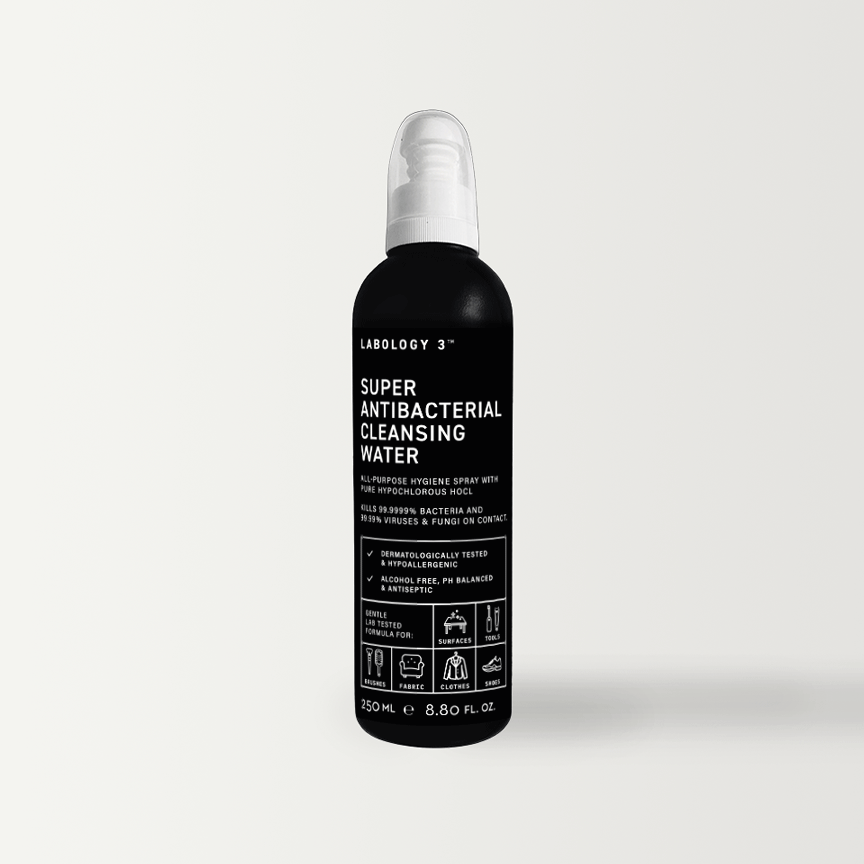
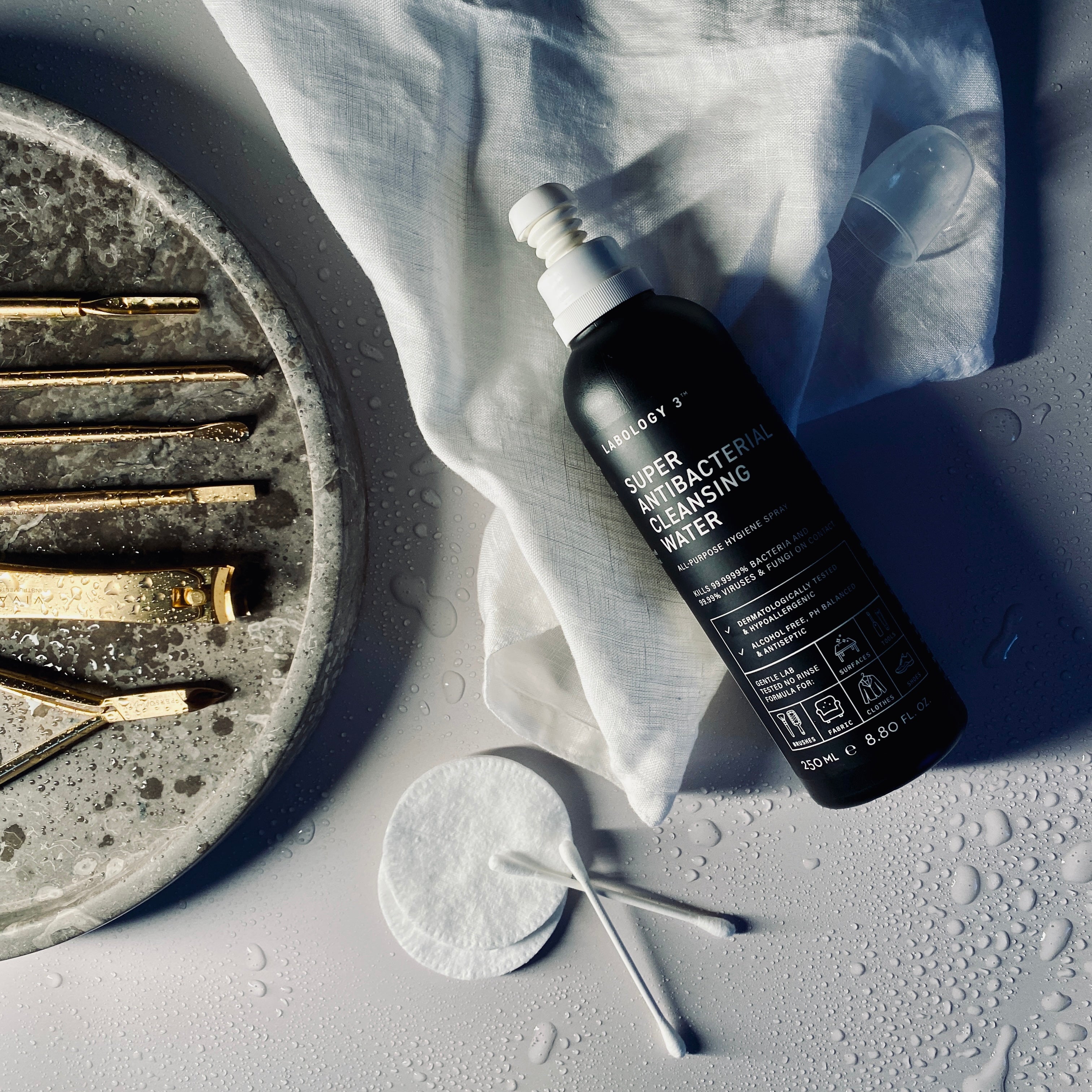
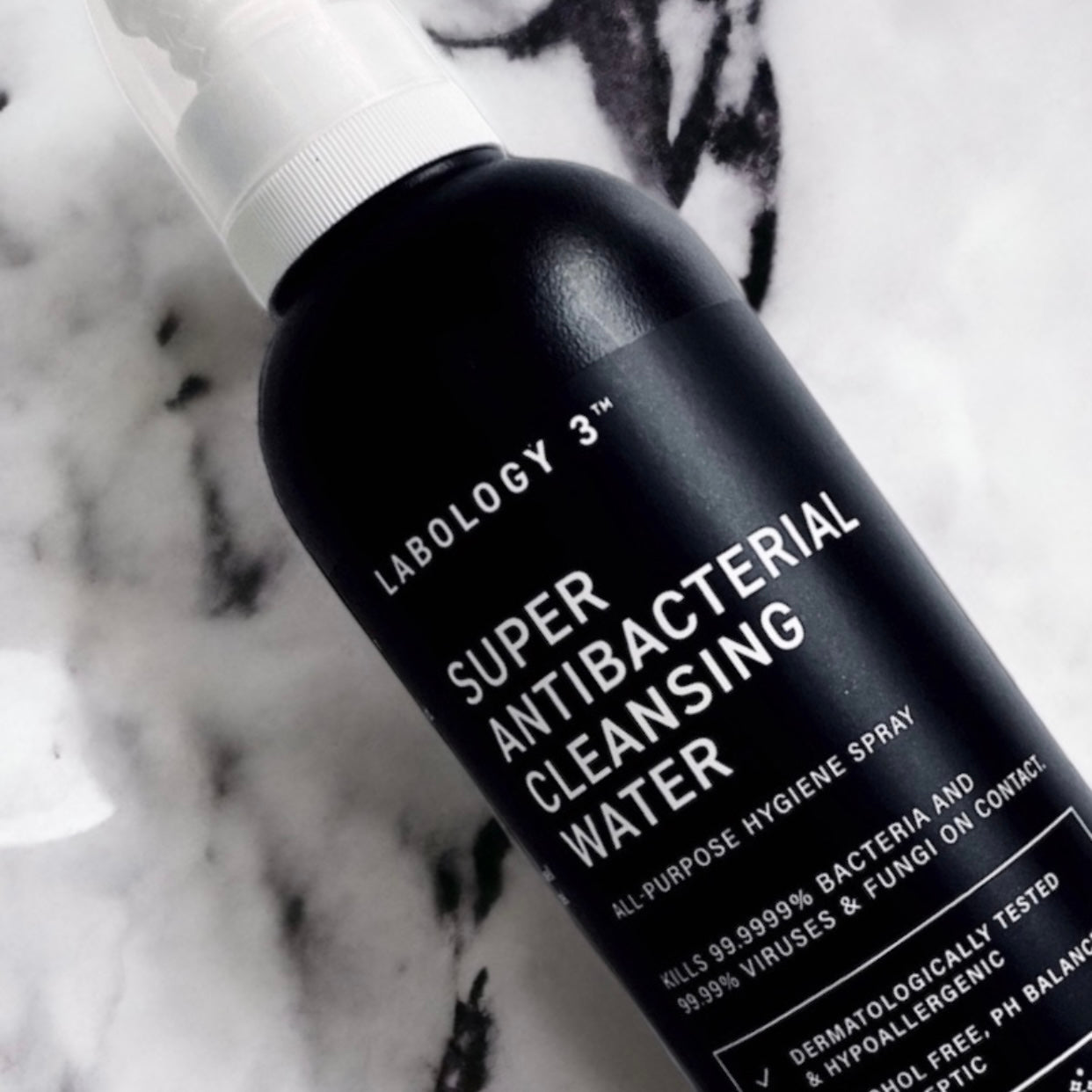
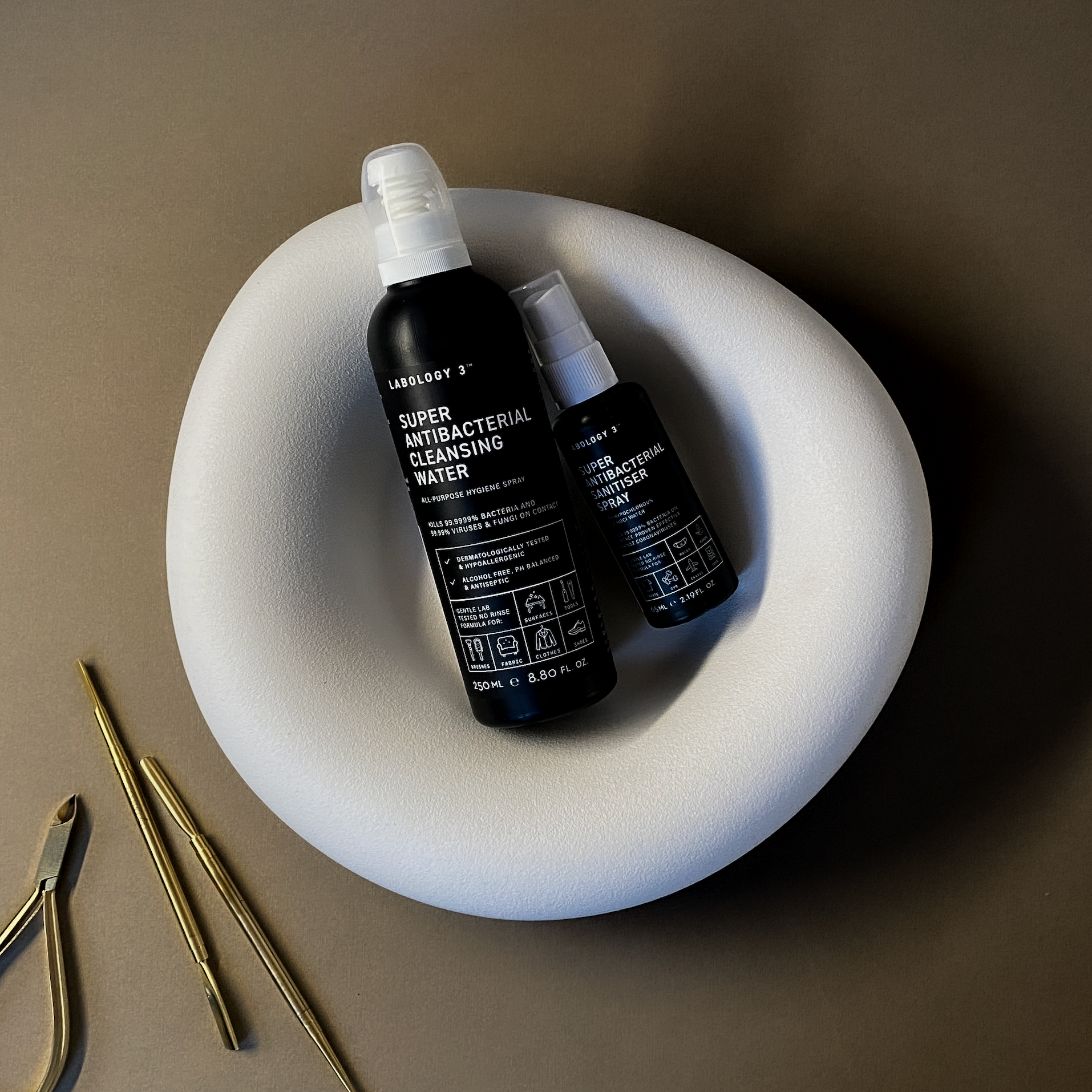
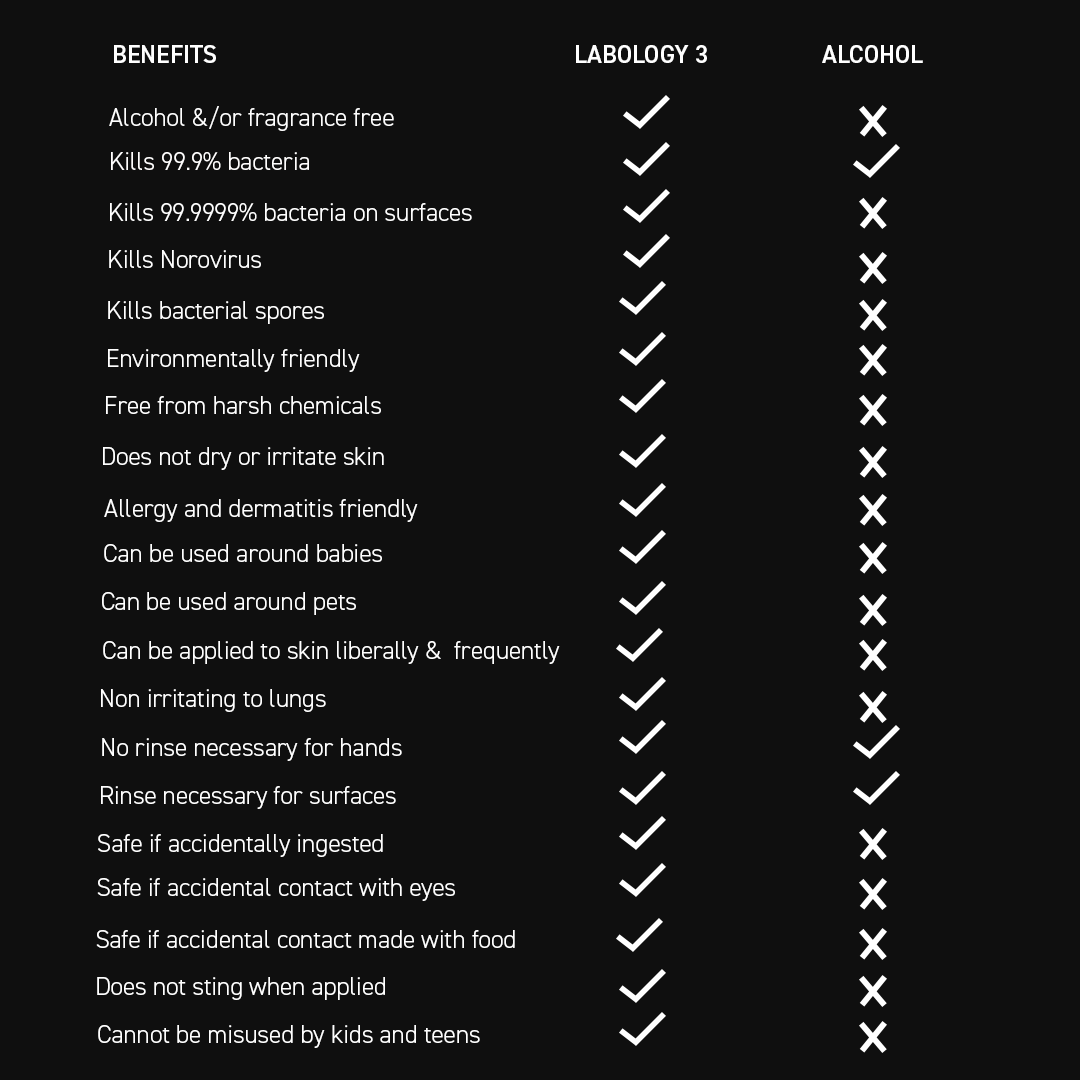
Elevate your beauty hygiene standards with The Big Bottle of our highly coveted Super Antibacterial Cleansing Water. Natural, biodegradable, hypoallergenic and alcohol-free it's the ultimate disinfectant solution for the modern-day beauty professional. The 250ml all-purpose cleansing water is designed to quickly and effectively disinfect your surfaces and work tools, eliminating 99.9999% bacteria and spores and 99.99% fungi and viruses in seconds, allowing you to provide the best level of care to your clients.
Crafted with the highest standards of safety and hygiene in mind, this cleansing water is compliant with the Biocidal Product Regulation meeting 21 EN categories, including EN 14348 for medical instruments. Loved by luxury and celebrity manicurists alike for its gentle yet quick cleaning action that feels just like water, it's fragrance-free and free from harsh chemicals, making it safe for even the most sensitive skin and lungs. Compared to wipes, alcohol-based sanitisers and traditional blue disinfectants it's so much kinder to the environment too.
